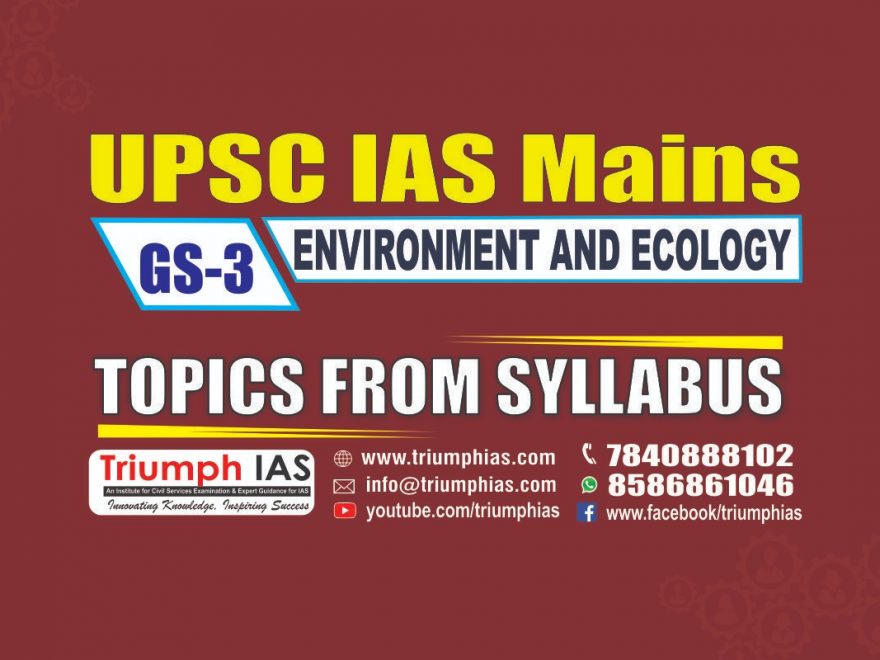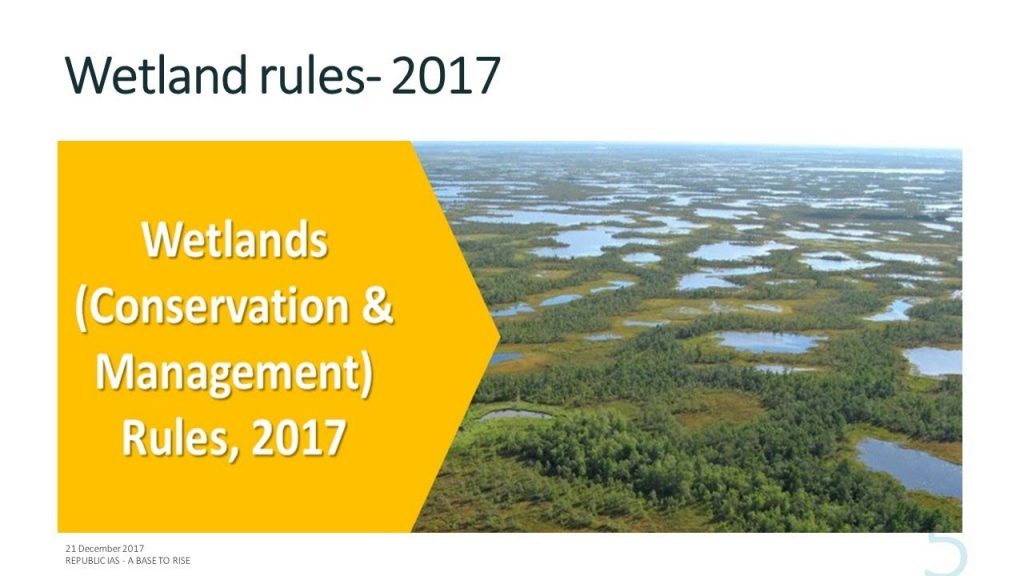Relevance: Mains: G.S paper III: Environment
- Ministry of Environment, Forest and Climate Change has notified the new Wetland Conservation Rules which prohibit setting up or expansion of industries and disposal of construction and demolition waste within the wetlands.
About:
- A wetland is a land area that is saturated with water, either permanently or seasonally, and it takes on the characteristics of a distinct ecosystem.
Analysis
The union environment ministry has notified the new Wetland Conservation and Management Rules 2017. The new rule prohibits a range of activities in wetlands like setting up and expansion of industries, waste dumping and discharge of effluents. The new rules will replace the 2010 version of the rules.
Wetlands can be defined as lands transitional between terrestrial and aquatic eco-systems where the water table is usually at or near the surface or the land is covered by shallow water. They support rich biodiversity and provide wide range of ecosystem services such as water storage, water purification, flood mitigation, erosion control, aquifer recharge and others.
But they are threatened by reclamation and degradation due to activities like drainage and landfill, pollution, hydrological alteration (water withdrawal and changes in inflow and outflow), over-exploitation resulting in loss of biodiversity and disruption in ecosystem services provided by them.
There are almost 115 wetlands that are officially identified by the central government and of those 26 are identified as wetlands of international importance under Ramsar Convention which is an international intergovernmental treaty for conservation of wetlands. India is a party to the treaty.
New Rules:
The new rules stipulate setting up of a State Wetlands Authority in each State and union territories. These authorities will be headed by the State’s environment minister. They will also include one expert each in the fields of wetland ecology, hydrology, fisheries, landscape planning and socioeconomics to be nominated by the state government.
These authorities will need to develop a comprehensive list of activities to be regulated and permitted within the notified wetlands and their zone of influence, recommend additional prohibited activities for specific wetlands, define strategies for conservation and wise use of wetlands, and undertake measures for enhancing awareness within stakeholders and local communities on values and functions of wetlands.
The State authorities will also need to prepare a list of all wetlands of the State or union territory within three months, a list of wetlands to be notified within six months, a comprehensive digital inventory of all wetlands within one year which will be updated every ten years.
The rules prohibit activities like conversion of wetland for non-wetland uses including encroachment of any kind, setting up of any industry and expansion of existing industries, manufacture or handling or storage or disposal of hazardous substances and construction and demolition waste, solid waste dumping, discharge of untreated wastes and effluents from industries, cities, towns, villages and other human settlements.
Under the new rules, the powers have been given to the State governments so that protection and conservation work can be done at the local level. Central government has mainly retained powers regarding monitoring. To oversee the work carried out by States, the rules stipulates for setting up of National Wetlands Committee, which will be headed by the MoEFCC Secretary, to monitor implementation of these rules.
The Committee will also advise the Central Government on appropriate policies and action programmes for conservation and wise use of wetlands, recommend designation of wetlands of international importance under Ramsar Convention, advise on collaboration with international agencies on issues related to wetlands etc.




